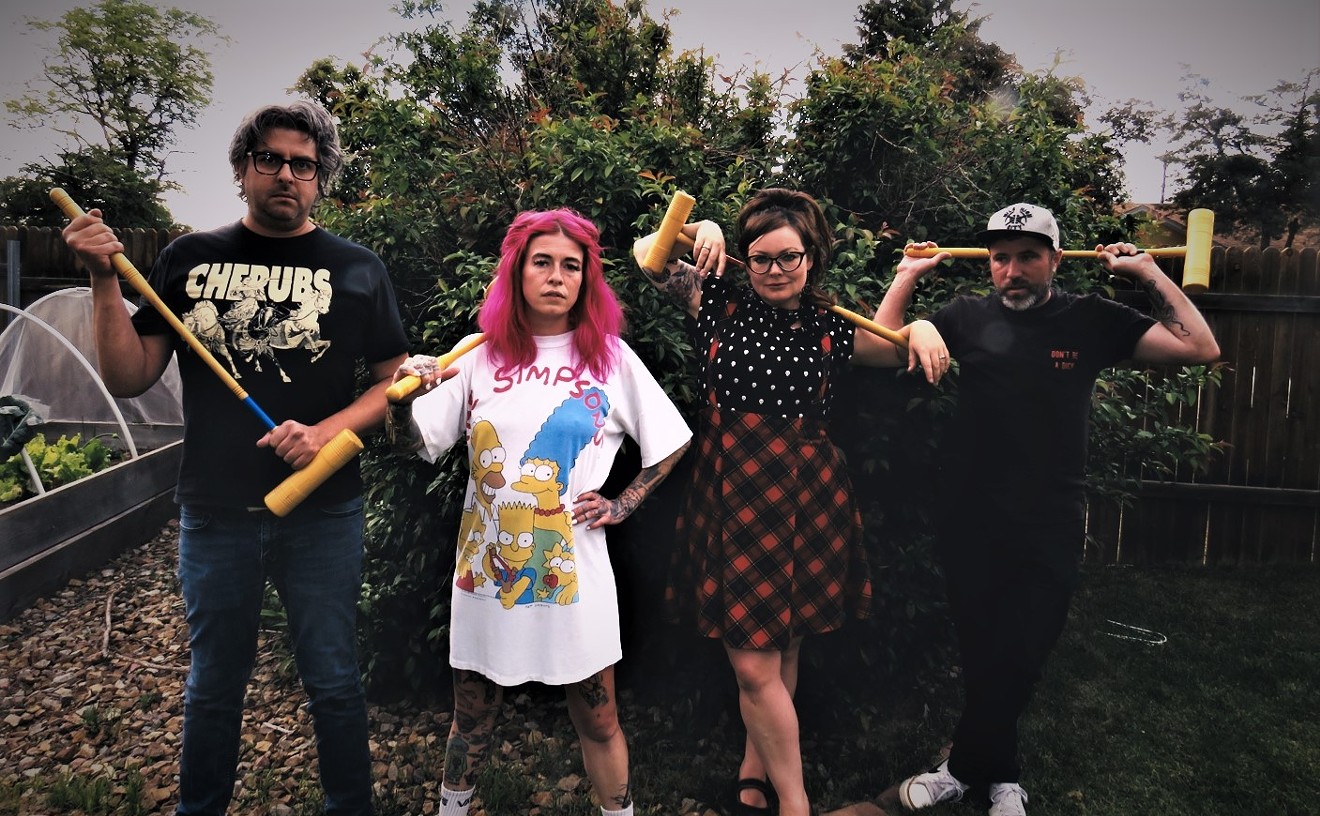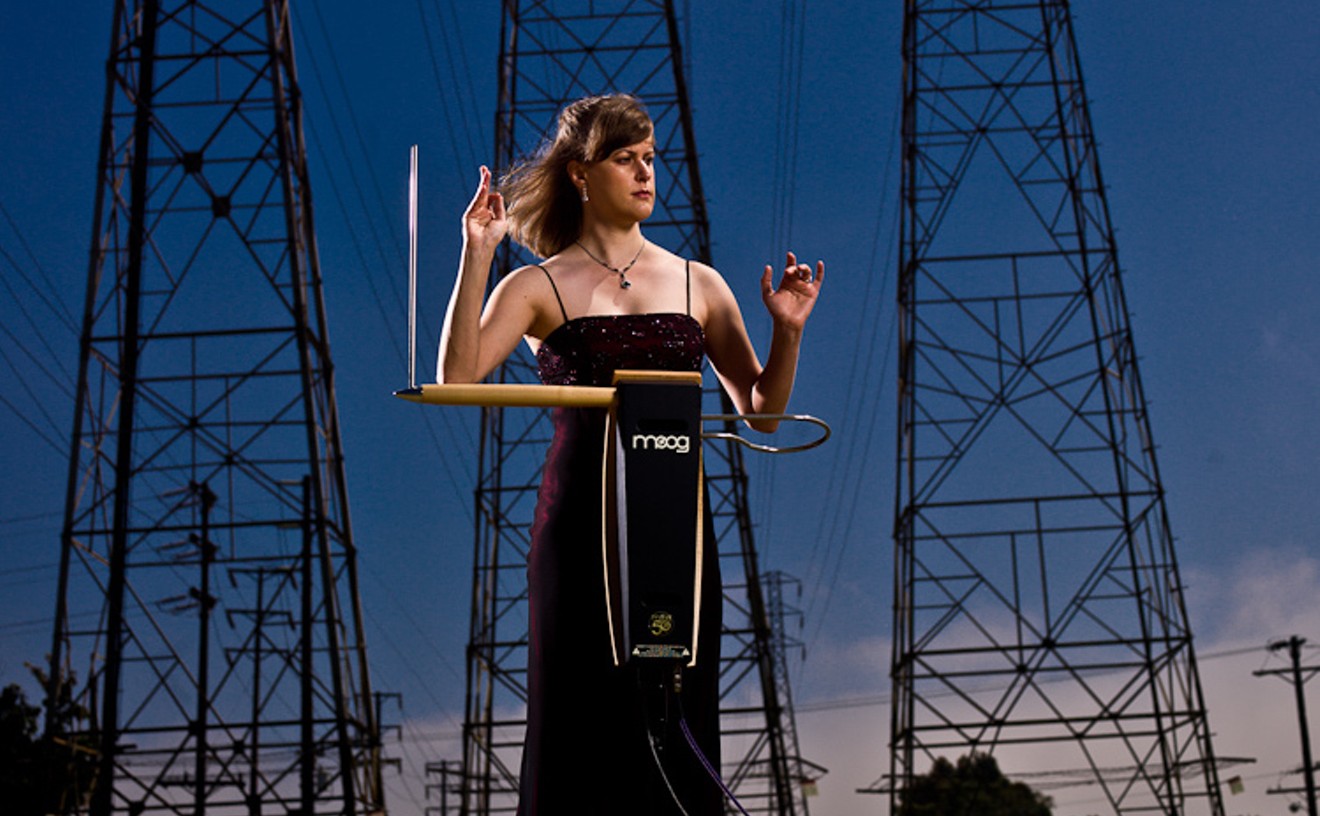Her manufactured creative identity is a work of art in itself that somehow also doesn't mask the real human emotions and experiences behind the songs. In that way, like her inspirations, Clark used this rock theater to both entertain and to communicate deeply personal thoughts that might otherwise be too confessional.
Between songs, Clark told stories seemingly from her childhood, while inviting us to remember a time before we too became canny adults with pre-formed conceptualizations and lenses through which to interpret experiences. One such anecdote involved her asking us to remember when we used two garbage can lids for wings thinking we could fly.
Yes, Clark seemed good-naturedly amused in these moments, but it really also felt like she was trying to remind us of a time in our lives when we used our imaginations more, felt more without filters and had a sense of possibility.
Clark's stage persona wasn't that of a dark rock goddess trying to cast her spell over you with her ego to earn your worship. It wasn't a clumsy seduction of spirit even if only for an hour and a half. It wasn't a salve for one's existential malnourishment, as things seen merely as entertainment often are. Instead, she used that moment of influence to affect a change in the way you think about your life, encouraging you to re-connect with the less cynical side of your brain.
Yes, Clark may have looked like an intergalactic pop star slumming it on Earth. But that image, so very different from ones earlier in her career, going all the way back through her previous solo albums to her time with The Polyphonic Spree, wasn't just visually striking. It was also a reminder that everyone is a little weird on the inside, and that sometimes those odd aspects of ourselves are the most universally relatable.
But we rarely talk about these things, instead trying desperately to adhere to an even weirder set of social standards. St. Vincent, with this stage persona, challenges that divide.Clearly Clark's time touring with David Byrne, after writing an album with him, rubbed off, and her body movements were an interesting mixture of angular movements, coquettish small-stepping and dramatic, grand gestures repeated. The bright lights, rapidly flashing, gave a sense of disorientation that was both jarring and hypnotic. They took you out of the everyday moment, and the rich tapestry of sounds and rhythms for each song cemented that impression. One of the most unusual moments in the show involved the structure in the back middle of the stage that looked like a three step, rectangular dais upon which Clark languished for a song or two. And at the end of "Prince Johnny," with strobe lights flashing, Clark looked like she was falling backwards down the stairs in slow motion.
Throughout the show there were relatively minor clothing changes concerning the overall color scheme. The final such change came at the end, when Clark came back on stage for the encore, standing atop the prop stairs, with just a guitar. She sang a lonely, minimal, yet touching rendition of "Strange Mercy." When the rest of the band came back on stage Clark, introduced each of them, referring to each as being "in black." A subtle, wry, absurdist joke, but one that worked and you felt like you were in on it, like you had definitely become part of a shared world.
Critic's Notebook
Bias: Was a bit of a fan of St. Vincent when Marry Me came out but seeing her show on the Actor tour and on the tour with David Byrne my respect for St. Vincent had grown considerably.
Random Detail: Ran into Claudine Rousseau of The Big Get Even, documentary filmmaker Chris Bagley and Open Air 1340 host Alisha Sweeney-Compton at the show.
By the Way: Before going into the show we were told not to use mobile phones to take pictures and to not smoke, "including marijuana." Most people respected the first request. No comment on the second.
Follow @Westword_Music











